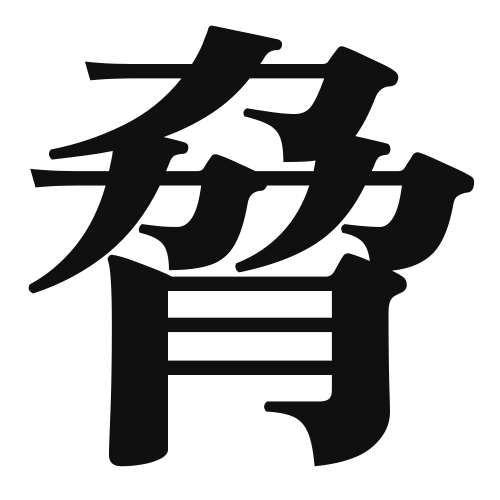1. Overview of Meaning
The kanji “脅” (kyou) means “to threaten” or “to intimidate.” It conveys a sense of causing fear or apprehension in others through words or actions.
2. Formation and Radical
Formation of the Kanji: The kanji “脅” is a phonetic-ideographic character (形声文字). It combines the radical for “flesh” (肉) on the left, which relates to the body, and the phonetic component “喧” (ken) on the right, which suggests sound or noise, indicating a threatening presence.
Radical: The radical of “脅” is “肉” (niku), which is often associated with the body or physicality.
3. Examples of Usage
Common Words and Phrases:
- 脅迫 (きょうはく, kyouhaku) – coercion or intimidation
- 脅威 (きょうい, kyoui) – threat or menace
Example Sentences in Daily Conversation:
- 彼は私を脅かすことはできない。 (かれはわたしをおどかすことはできない。) – He cannot threaten me.
- そのニュースは脅威を感じさせた。 (そのニュースはきょういをかんじさせた。) – The news made me feel threatened.
4. Synonyms and Antonyms
Similar Kanji:
- 威圧 (いあつ, iatsu) – intimidation, which implies a more forceful presence.
- 脅かす (おどかす, odokasu) – to scare or frighten, which is more about causing fear rather than a direct threat.
Antonyms:
- 安心 (あんしん, anshin) – peace of mind, which conveys a sense of safety and security.
- 友好 (ゆうこう, yuukou) – friendship, representing a positive and supportive relationship.
5. Cultural and Historical Background
Relation to Japanese Culture: The concept of “脅” is often reflected in various aspects of Japanese culture, including literature and film, where themes of intimidation and conflict are explored.
Proverbs and Idioms:
- 脅し文句 (おどしもんく, odoshimonku) – a threatening remark, often used in discussions about negotiation or conflict.
